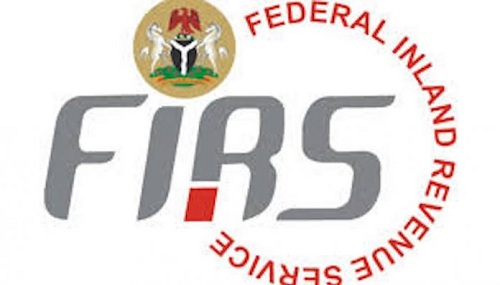The Executive Chairman, Federal Inland Revenue Service (FIRS), Mr. Muhammad Nami, yesterday disclosed that the country’s tax-to-GDP ratio increased to 10.86 per cent in 2021, compared to about six per cent in the past 12 years.
He said the ratio was communicated to the FIRS via a letter signed by the Statistician-General of the Federation/Chief Executive, National Bureau of Statistics (NBS), Mr. Adeyemi Adeniran, following a joint review by both agencies in collaboration with the Federal Ministry of Finance, using data from 2010 to 2021.
This came as the Nigeria Customs Service (NCS) and the World Bank have partnered to reward adherence to trade regulations and significantly reduce costs associated with cargo handling and demurrage at Nigerian ports.
Nami however, re-echoed his call on the federal government to consider reviewing its policies on tax waivers in order to guarantee increased revenue to prosecute developmental programmes.
In a statement issued by his Special Assistant on Media and Communication, Mr. Johannes Wojuola, Nami pointed out that the revision took into account revenue items hitherto not previously included in the computations, particularly relevant revenue collected by other agencies of government.
Essentially, tax-to-GDP ratio measures a country’s tax revenue relative to the size of her economy as measured by Gross Domestic Product (GDP).
The ratio is a useful tool for assessing the health of a country’s tax system, and highlighting its tax potential relative to the size of the economy.
It is the ultimate measure of the effectiveness of the tax system compared to other countries.
Speaking further, Nami explained that sources that previously computed the country’s tax-to-GDP at between five per cent and six per cent did not take into account tax revenue accruing to other government agencies in their computation.
He said revenues collected by agencies other than the FIRS, Customs, and States Internal Revenue Service were excluded.
According to him, the situation was peculiar to Nigeria as most other countries operate harmonised tax systems, where all or most tax revenues are collected by one agency of government, with single-point tax revenue reporting – allowing for all relevant tax revenues to be included in the computation.
Nami said, “In order to correctly state the tax-to-GDP ratio, the FIRS initiated a review and re-computation of the ratio for 2010 to 2021. In recomputing the ratio, key indicators that were previously left out were taken into account. This resulted in a revised tax-to-GDP ratio of 10.86 per cent for 2021 as against six per cent hitherto reported.”
He said Nigeria’s tax-to-GDP ratio should ordinarily be higher than 10.86 per cent, but for certain economic and fiscal policy factors, including tax waivers and leakages occasioned by the country’s fragmented tax system.
The FIRS boss said, “It is important to note that the tax-to-GDP ratio for Nigeria should be higher but for the impact of tax waivers contained in our various tax laws, including exemptions to Micro, Small and Medium Enterprises brought in by Finance Act, 2019, low tax morale, leakages occasioned by the country’s fragmented tax system and the impact of the rebasing of the GDP in 2014.”
However, Adeniran, in his letter to the service, described the review as a facelift to the tax-to-GDP ratio for the country relative to other countries.
He further noted that the NBS had “carefully and diligently reviewed the methodology used for computing the revised estimates, as well as the various items that have been included in the new computation,” and that the NBS as an outcome of its review and meetings with FIRS has adopted the new Tax-to-GDP computation.
Meanwhile, NCS in collaboration with the World Bank has initiated the modalities for migration from Fast Track Regime to Fast Track 2.0 (FT 2.0) under the Accelerating Revenue Mobilization Reforms Program (ARMOR).
In a statement, customs spokesman, Abdullahi Maiwada, explained that the system aims to reward compliance and facilitate trade by admitting traders based on their adherence to regulations and contribution to trade in Nigeria.
He said the introduction of Fast Track 2.0, would enable the service to streamline trade processes, promote compliance, and create a more efficient and rewarding environment for traders.
Maiwada noted that when fully operational, the system was expected to encourage traders to comply with customs regulations and rules.
He said, “One of the main advantages is the potential for significant cost reductions associated with cargo handling and demurrage at the ports.



